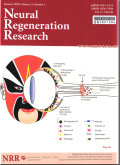摘要Post-acute ischemic stroke hyperglycemia increases the risk of hemorrhagic transformation,which is associated with blood-brain barrier disruption.Brain microvascular endothelial cells are a major component of the blood-brain barrier.Intercellular mitochondrial transfer has emerged as a novel paradigm for repairing cells with mitochondrial dysfunction.In this study,we first investigated whether mitochondrial transfer exists between brain microvascular endothelial cells,and then investigated the effects of post-acute ischemic stroke hyperglycemia on mitochondrial transfer between brain microvascular endothelial cells.We found that healthy brain microvascular endothelial cells can transfer intact mitochondria to oxygen glucose deprivation-injured brain microvascular endothelial cells.However,post-oxygen glucose deprivation hyperglycemia hindered mitochondrial transfer and exacerbated mitochondrial dysfunction.We established an in vitro brain microvascular endothelial cell model of the blood-brain barrier.We found that post-acute ischemic stroke hyperglycemia reduced the overall energy metabolism levels of brain microvascular endothelial cells and increased permeability of the blood-brain barrier.In a clinical study,we retrospectively analyzed the relationship between post-acute ischemic stroke hyperglycemia and the severity of hemorrhagic transformation.We found that post-acute ischemic stroke hyperglycemia serves as an independent predictor of severe hemorrhagic transformation.These findings suggest that post-acute ischemic stroke hyperglycemia can aggravate disruption of the blood-brain barrier by inhibiting mitochondrial transfer.
更多相关知识
- 浏览5
- 被引1
- 下载0


相似文献
- 中文期刊
- 外文期刊
- 学位论文
- 会议论文



 换一批
换一批 换一批
换一批



